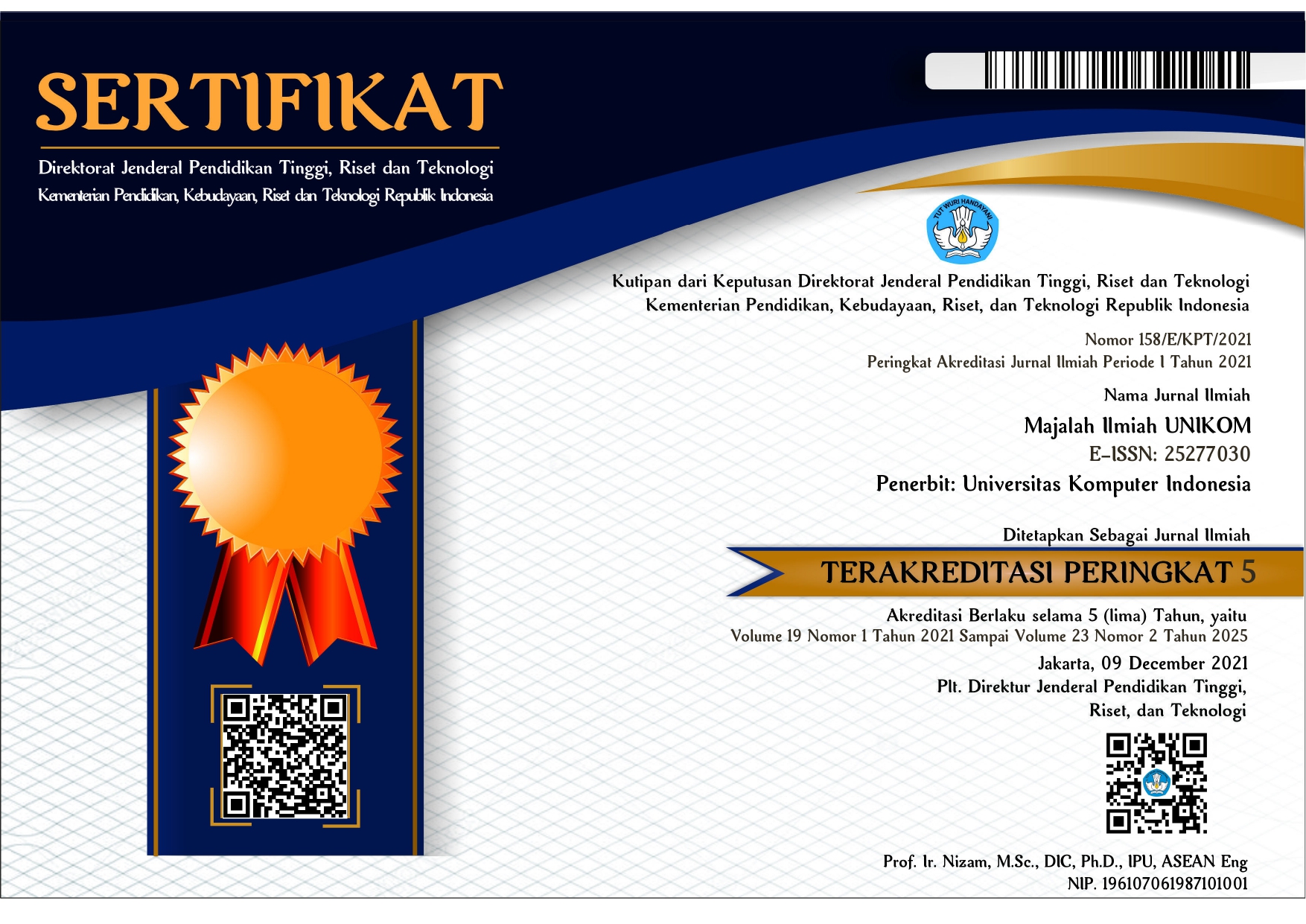PERANCANGAN RADIO PORTABEL UNTUK MASYARAKAT PEDESAAN DI INDONESIA BERBASIS FREKUENSI MODULASI (FM) DENGAN MENGGUNAKAN MP3, MEMORY CARD, KOMPUTER DAN LINE IN MICROPONE SEBAGAI MEDIA INPUT RADIO
Abstract
Dalam merealisasikan sebuah perangkat pemancar maka gelombang FM merupakan pilihan yang ideal karena memiliki fidelitas yang tinggi dan tahan terhadap noise. Untuk membangun sistem yang mempunyai frekuensi keluaran yang stabil dan bisa diubah-ubah digunakan sistem PLL (Phase Loocked Loop) pada bagian osilator. Pemancar FM portable merupakan perangkat yang dirancang untuk masyarakat pedesaan yang ada di Indonesia. Perangkat ini mudah dipindah-pindahkan serta mudah dalam penggunaannya. Daya yang dihasilkan pesawat pemancar FM ini sebesar 0.4 Watt – 0.6 Watt dan jarak pancar mencapai jarak 10-20 meter. Sistem pemancar FM portable dengan osilator PLL ini akan bekerja dengan baik bila slot frekuensi yang ditempati masih kosong, sehingga bebas dari interferensi frekuensi pemancar radio lain. Untuk meningkatkan kinerja sistem pemancar FM dibutuhkan respon yang seragam terhadap frekuensi audio, distorsi amplitudo sangat rendah, dan tingkat noise yang rendah.
Keywords : Frequency Modulation (FM), Pemancar, Phase Looked Loop (PLL), Portable, Audio Standar
Published
Issue
Section
License
Authors who publish articles in MAJALAH ILIMIAH UNIKOM agree to the following terms:
- Authors retain the copyright of the article and grant the journal right of first publication with the work simultaneously licensed under CC-BY-SA or The Creative Commons Attribution–ShareAlike License.
- Authors can enter into separate, additional contractual arrangements for the non-exclusive distribution of the journal's published version of the work (e.g., post it to an institutional repository or publish it in a book), with an acknowledgment of its initial publication in this journal.
- Authors are permitted and encouraged to post their work online (e.g., in institutional repositories or on their website) before and during the submission process, as it can lead to productive exchanges, as well as earlier and greater citation of published work (See The Effect of Open Access).




